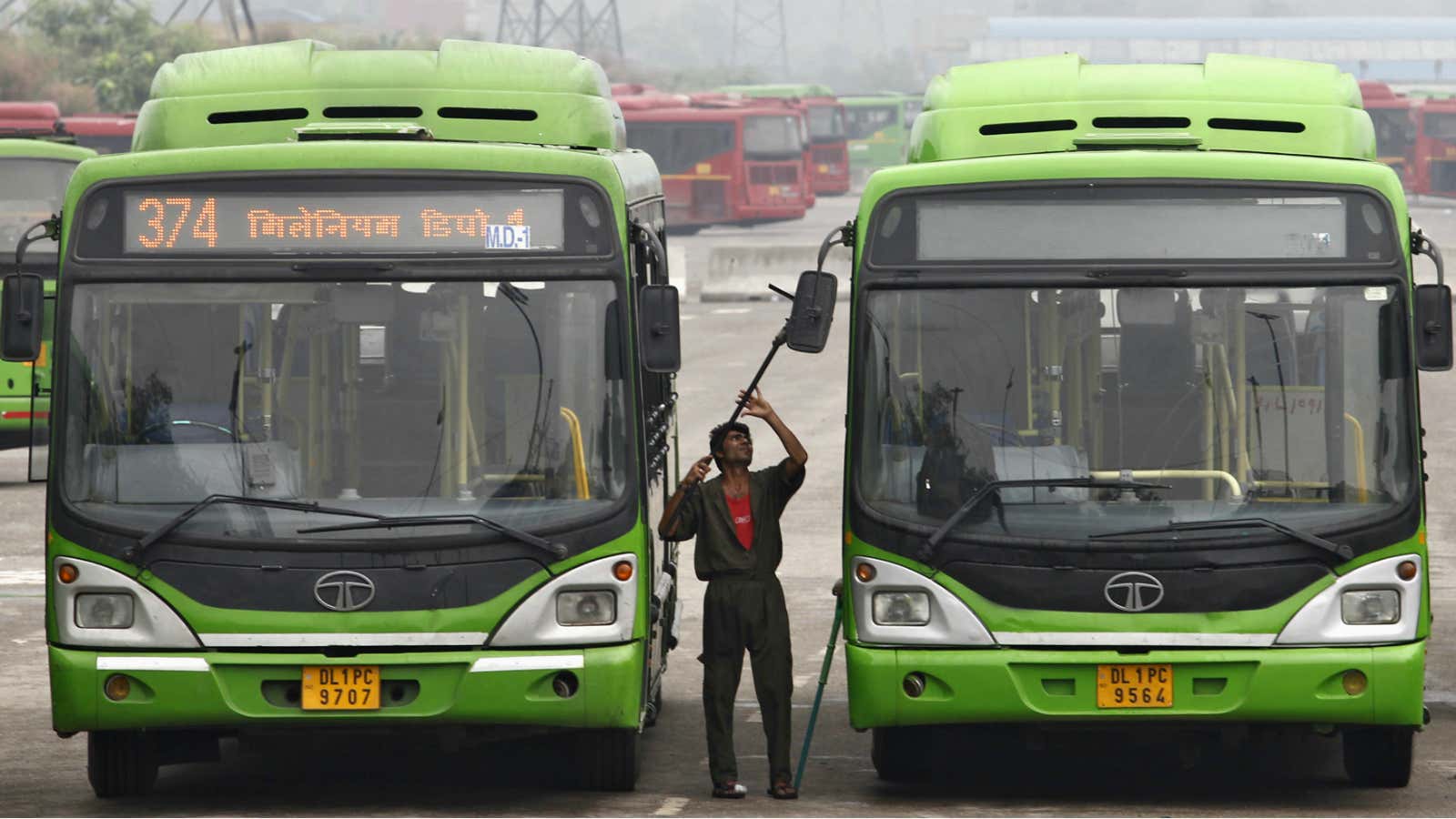A storied truck-maker and an ambitious upstart are coming together, in further proof that India’s electric mobility ecosystem is gaining traction.
On July 18, Ashok Leyland, the country’s second-largest truck-maker, announced a strategic partnership with SUN Mobility, a transportation solutions startup, to develop a battery swapping system for electric buses. The initial focus will be on intra-city buses, followed by smaller delivery trucks, inter-city buses, and long-haul trucks, Ashok Leyland’s managing director & CEO Vinod K Dasari told the Mint newspaper.
Led by Chetan Maini, a Stanford-trained engineer who built India’s first electric car Reva, SUN Mobility is hawking a smart battery system that can power a range of electric vehicles. Alongside a network of quick interchange battery stations, mostly powered by renewable energy, the company is aiming to refuel electric vehicles cheaper and faster than conventional petrol pumps.
The proposition seems to make sense to Ashok Leyland, which has been working on electric buses for some time now. Last October, the commercial vehicles major unveiled its first India-made electric bus, Circuit. Ashok Leyland also has a British subsidiary, Optare, which offers a fleet of electric buses (pdf) in European markets.
But swappable batteries, an area that Ashok Leyland has reportedly been exploring already, could be the potential game changer in India.
In a lecture in June, Ashok Jhunjhunwala, a principal advisor to the government of India’s ministry of new and renewable energy, insisted that swappable batteries would have to be at the heart of the government’s plan to put at least six million electric vehicles (EVs) on Indian roads by 2020. As Quartz had reported then:
The primary roadblock was the high cost of batteries for EVs, which could not be offset without subsidies, he explained. But interacting with the automotive and EV industry, Jhunjhunwala realised that there was an opportunity to build volumes if EVs could be separated from the single most expensive component: batteries. “We said we’ll start buying vehicles without battery,” he said. “For example, if I want to buy a bus or a three-wheeler, I’ll buy it without (the) battery but with enhanced (vehicle) efficiency.”
This arrangement, Jhunjhunwala said, brings the cost of EVs (without battery) at par with conventional vehicles. By focusing on higher efficiency vehicles and batteries that can be swapped at regular intervals, the cost per kilometre can be brought down to levels comparable with diesel, petrol or CNG vehicles. Compared to larger batteries used in EVs, which typically aren’t interchangeable, these swappable batteries are smaller, cheaper, and take less time to charge. “Suddenly the whole economics was working. And once the economics work, one can scale,” he said.
That broadly seems to be the path that SUN Mobility and Ashok Leyland are looking to travel on.
